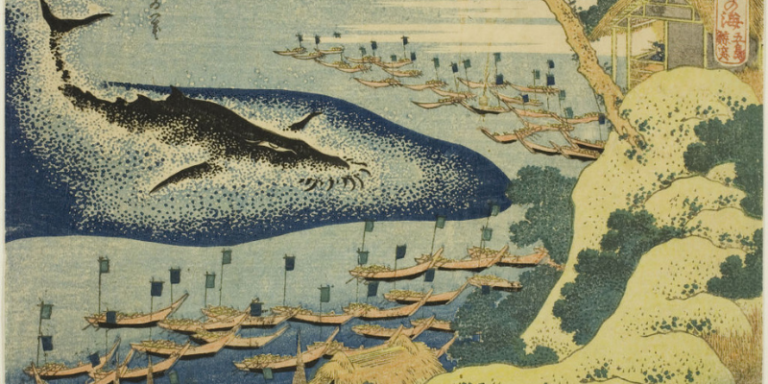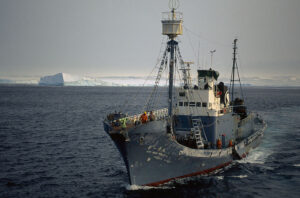Japan Leaves the IWC and Returns to Commercial Whaling
A group of nations banned hunting whales around the world, but Japan left the group and hunts once more.
By: Kelli Ballard | October 9, 2019 | 362 Words

(Photo by Heritage Art/Heritage Images via Getty Images)
The age-old tradition of whaling has just been reinstated in Japan after being banned for more than 30 years. However, not everyone is happy about the country’s decision to restore whaling.
Whaling History and Endangered Species
Whales were almost hunted to extinction in the 1800s and 1900s, but in the 1960s the old practice of spearing whales was replaced with better methods, which made whales much easier to catch. After the second World War, when there wasn’t much food, whale became the biggest source of meat in Japan.
The fact that whales were being hunted almost to extinction, as well as the terrible ways of getting them, led to the creation of the International Whaling Commission (IWC). In 1986, the group put a stop to the hunting of whales to allow their numbers to recover. All members, including Japan, agreed – if somewhat reluctantly. Countries that had often practice whaling, such as Japan, Iceland, and Norway, thought the ban would only be temporary, but so far it has lasted 31 years. The ban allows for exceptions, such as for native peoples whose custom and source of food depend on the practice and for scientific studies.

(Photo by Mark Votier/Hulton Archive/Getty Images)
Present Day Whaling
In July 2019, Japan left the IWC so that it could officially bring back its whaling tradition, but hunting cannot be done in international waters.
This still doesn’t appease the conservationists, and there is concern whether the country could be taken to court. Article 65 of the agreement says that “states shall co-operate with a view to the conservation [of whales]” and “shall in particular work through the appropriate international organizations for their conservation, management and study.”
When hunting for research purposes, last year’s cap was 332, which was higher than what the first commercial hunt just returned with that included 52 mink whales, 150 Bryde’s whales, and 25 sei whales. Of the three, only sei whales are still classified as endangered; however, their numbers are increasing. Since Japan dropped out of the IWC and will have to stick to their own waters, this may also cut down on the amount of whales caught.
















